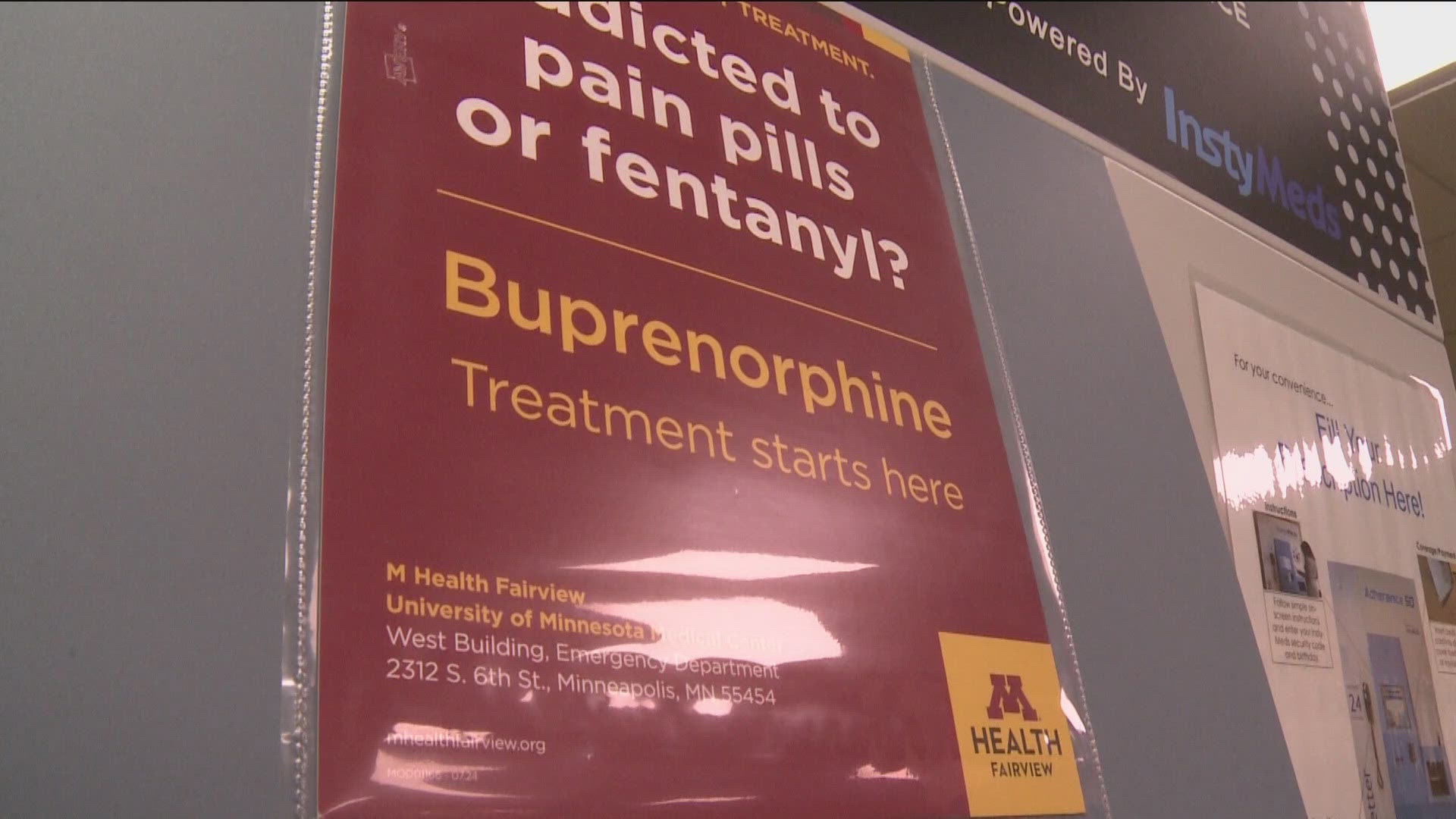MINNEAPOLIS — In Minnesota, opioid-related deaths continue to rise, with more than 1,000 fatalities in 2022. That's up from 421 people in 2017, according to the Minnesota Department of Health.
Thus M Health Fairview and the Minneapolis Health Department's Opioid Response Team spent a couple of years figuring out how to best expand access to addiction treatment medications for communities hit hard by the opioid crisis.
In June 2023, the agencies successfully launched First Step, a pilot program within the M Health Fairview emergency department.
Communities served by M Health Fairview University of Minnesota Medical Center - West Bank are disproportionately impacted by the opioid crisis, experiencing some of the worst racial disparities in overdose deaths nationwide, according to the hospital system.
Emergency physician Dr. Dziwe Ntaba leads the First Step program on the East and West Bank campuses.
"What we see in the emergency department are some of the downstream consequences of untreated addiction," Ntaba said. "The City of Minneapolis Health Department has been a great partner with us in funding support and connecting us with community groups."
Now the hospital is sharing the results of the $389,000 pilot, telling KARE 11 that more than 500 people have benefited from it so far.
"We see a fair number of people who have been resuscitated from overdose," Ntaba said. "But we see a far greater number of people who are struggling with addiction, and they're either coming here because they want treatment specifically or they're coming here because of … a traumatic injury as a consequence of their addiction."
Doctors have been able to get around 75% of those patients started on therapeutic medication meant to stabilize the brain structures dependent on opioids.
"The medication that we're talking about is called buprenorphine, or Suboxone is a common name, brand name," Ntaba explained. "We've had the benefit of working with some consultants from the National Bridge Team which have really developed the best protocols around the country in starting patients right away at a therapeutic dose on demand in the emergency department."
Narcan is also used to help patients come to if they've overdosed, whereas buprenorphine is for long-term recovery.
In the front lobby, there is an InstyMeds machine allowing patients and nonpatients to ring a pharmacist and request what's called Compassionate Care.
"They then put in a 10-digit code, and then the medication is dispensed like a vending machine," said RN Topher McMenemy, who supervises patient care. "We're able to give patients that medication free of charge."
There's also a recovery clinic down the hall, and M Health Fairview reports more than two-thirds of patients have connected with a substance use navigator since the program started. The navigator assists with prescription access and referrals.
"Being able to provide medication to patients at the point that they're ready to make that change for themselves is really impactful," McMenemy said.
Ntaba says the program aims to reduce the stigma around addiction. He says the plan is to eventually expand First Step to all M Health Fairview hospitals, and says there is enough medication to keep the program going. M Health Fairview reports it's the only Minnesota hospital system participating in this initiative. There are 300 hospital systems trying out similar programming nationwide.
"We are committed to helping those suffering from substance misuse," Minneapolis Health Department Deputy Commissioner Heidi Ritchie said in a press release announcing program outcomes. "With medications like Suboxone, we can help people move into recovery, but urgency is key."

